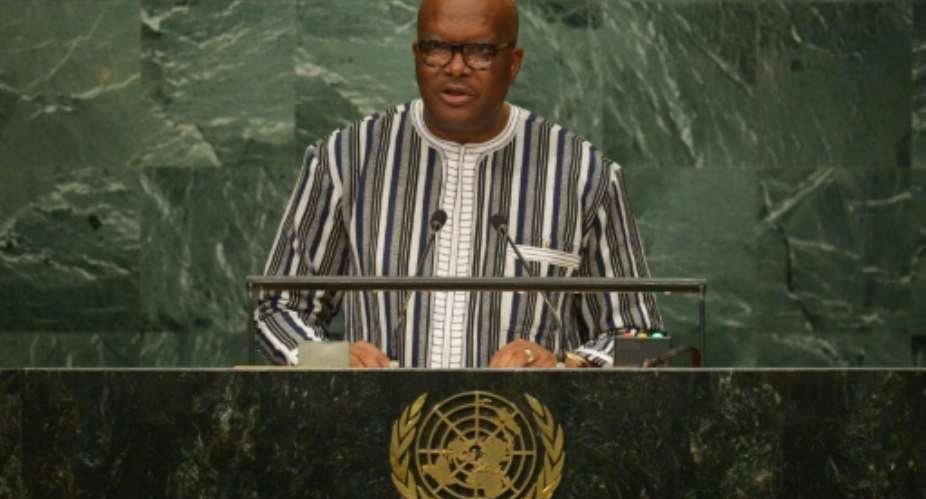Ouagadougou (AFP) - Burkina Faso, despite suffering Islamist attacks, stands out as a "model of religious tolerance", the International Crisis Group said in a report published Thursday.
The report, entitled "Burkina Faso: Preserving the Religious Balance", stressed the prevailing tolerance created by a "deep-rooted" religious pluralism.
This is in sharp contrast to "the rising tide of religiously motivated violence in West Africa and the Sahel" region, the Brussels-based NGO said in its report.
"Burkina has never suffered civil war or religious conflict. Muslims, Christians and animists are neighbours, live together and inter-marry," according to the report which was presented in the capital Ouagadougou.
Nevertheless jihadist attacks in the capital in January left 30 people dead, according to the Burkina government.
Al-Qaeda in the Islamic Maghreb claimed it was behind an assault on a top hotel and a cafe, both popular with foreigners, which also left 70 people wounded.
Those attacks "were a shock to both the general public and the ruling class," the ICG report said.
"Isolated incidents of verbal aggression against Muslims were reported in the following weeks. They revealed some degree of stigmatisation and reflected concerns that had not been present until then."
Muslims make up 60 percent of the Burkina population in the impoverished West African nation. Nineteen percent are Catholics, 15 percent animists and 4 percent protestant but religion is "only a secondary badge of identity," according to the ICG
There are few Burkinabe who do not have a friend, relative or neighbour of a different faith and it is rare for all members of a broader family to practise the same religion, the report said.
However there are frustrations among the majority Muslim community as they are "poorly represented among the political and administrative elite" compared to the Christian population.
"The resulting frustration can be dangerous. Unless the authorities start to remedy the situation, some Muslims could feel it is no longer worth talking to the government and turn to other ways of expressing themselves," the ICG warned.





 Meta releases new version of conversational AI across its platforms
Meta releases new version of conversational AI across its platforms
 Cape Town named Africa’s Best Airport 2024 by Skytrax
Cape Town named Africa’s Best Airport 2024 by Skytrax
 Bono East: Four injured after hearse transporting corpse crashes into a truck
Bono East: Four injured after hearse transporting corpse crashes into a truck
 ‘Be courageous, find your voice to defend our democracy’ — Sam Jonah urges journ...
‘Be courageous, find your voice to defend our democracy’ — Sam Jonah urges journ...
 Exodus of doctors, nurses and teachers have worsened because of unserious Akufo-...
Exodus of doctors, nurses and teachers have worsened because of unserious Akufo-...
 2024 election: Avoid insults, cutting down people in search of power – National ...
2024 election: Avoid insults, cutting down people in search of power – National ...
 ‘You passed through the back door but congratulations’ — Atubiga on Prof Jane Na...
‘You passed through the back door but congratulations’ — Atubiga on Prof Jane Na...
 Government’s $21.1 billion added to the stock of public debt has been spent judi...
Government’s $21.1 billion added to the stock of public debt has been spent judi...
 Akufo-Addo will soon relocate Mahama’s Ridge Hospital to Kumasi for recommission...
Akufo-Addo will soon relocate Mahama’s Ridge Hospital to Kumasi for recommission...
 We must not compromise on our defence of national interest; this is the time to ...
We must not compromise on our defence of national interest; this is the time to ...
